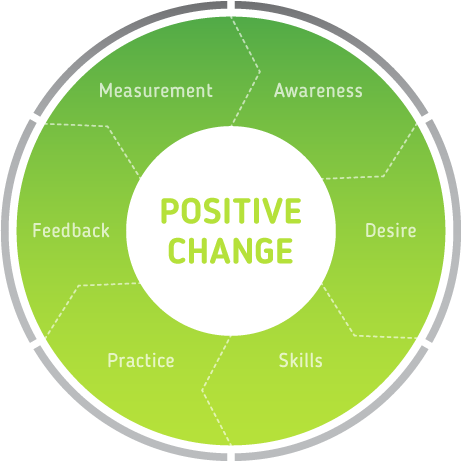
The secret to unleashing your potential
What do Oprah, Bill Gates & Gary Vaynerchuk all have in common? Apart from the fact that these three individuals are all widely successful, they have all had coaches to help them along on their unique and very diverse journeys.
Research supports the benefits associated with coaching which include helping professionals to achieve increased performance, well-being, coping, and goal attainment. A survey conducted by Stanford University found that almost 100% of the CEOs questioned said they enjoy the process of being coached or receiving leadership advice, yet 66% do not have a relationship with an outside executive coach or consultant. Further, almost half of senior executives who participated in the study were reportedly not getting any sort of coaching.
How many years have your leaders spent learning the technical aspects of how to do their jobs? Including both formal education and hands-on experience…probably decades. Yet, how many years have your leaders spent learning how to LEAD those around them?
Senior leaders usually manage a range of people who sit much closer to the problems being solved and who often have more expertise in the functional area they are working in. Early in their career, leaders will generally offer advice based on their own experience or skills: “Here’s how I’d handle this situation…”, yet this may not always be the most objective and well-considered solution. Autocratic guidance from a senior leader can be counterproductive, preventing the individual from taking responsibility for the problem and making full use of the individual’s knowledge. Such an approach also keeps senior leaders involved with transactional details and distracts them from larger strategic issues.
So how does coaching help?
The role of the coach is to help the individual learn several strategies and techniques to help them function more effectively and with higher efficiency. Although the goals are personalised for individual needs, common goals can include teaching the individual to take a different perspective, how to effectively leverage the strengths of those around them, how to have robust and challenging conversations with positive outcomes and to develop a heightened awareness of their behavioural tendencies.
The coach will help:
- Establish clear goals and direction
- Set a timeline
- Keep the individual accountable and establish feedback loops within the organisation for real-time learning
- Drive sustainable key outcomes using various techniques
- When needed offer perspective and advice
The coaching model:
Prepare individually: take time to examine your motives before the conversation.
- Clarify together: discuss and agree on the desired purpose.
- Learn by listening: Listen to your team members’ point of view empathetically, and reflect to ensure understanding.
- Explore options: Share your opinions and thoughts respectfully, and ask insightful questions.
- Commit to actions: Invite the team member to make commitment and establish a follow up.
There are three key coaching skills needed for effective coaching conversations; Listening, Questioning, and Acknowledging. Coaches are required to be silent and put aside their assumptions. Coaches are required to ask questions, which comes in three types, clarifying questions; to seek understanding, open-ended questions; to explore possibilities, and insightful questions; to tap into their creativity. Coaches help others get out of difficult situations by reminding them of their skills and resources (Franklin Cover Ireland 2023).
Organisations that invest in coaching for their leaders send the message that they are willing to invest in not just the business, but also in the individual and unleashing their potential. This may help boost brand loyalty by showing the leaders that the organisation believes in a long-term working relationship. The International Coaching
Federation has also provided several studies showing that coaching usually generates a return on investment of between $4-8 for every dollar invested. That’s worth the initial outlay!
The Steople Difference
“Give a man a fish, and you feed him for a day. Teach a man to fish and you feed him for a lifetime.” – Proverb
Our leadership development programs improve and align the behaviours of business leaders with the aspirations of the business. Underpinning all leadership development programs is our Positive Behaviour Change FrameworkTM. This framework helps to reinforce sustainable behaviour change that achieves measurable outcomes for both the individual and the business.

